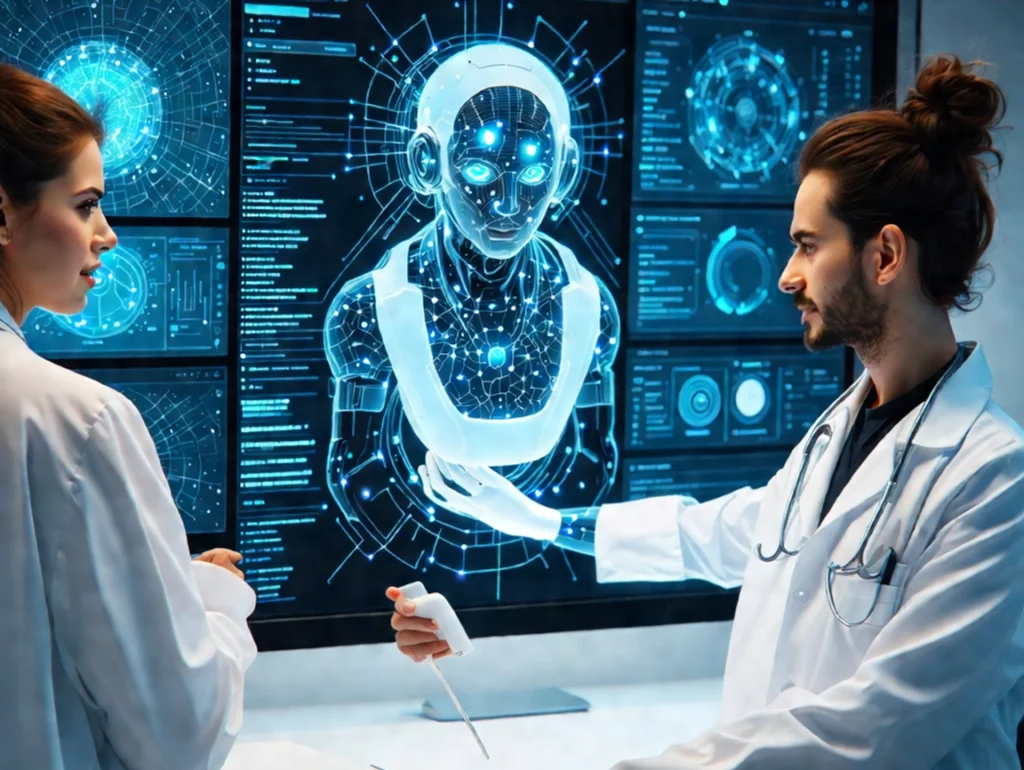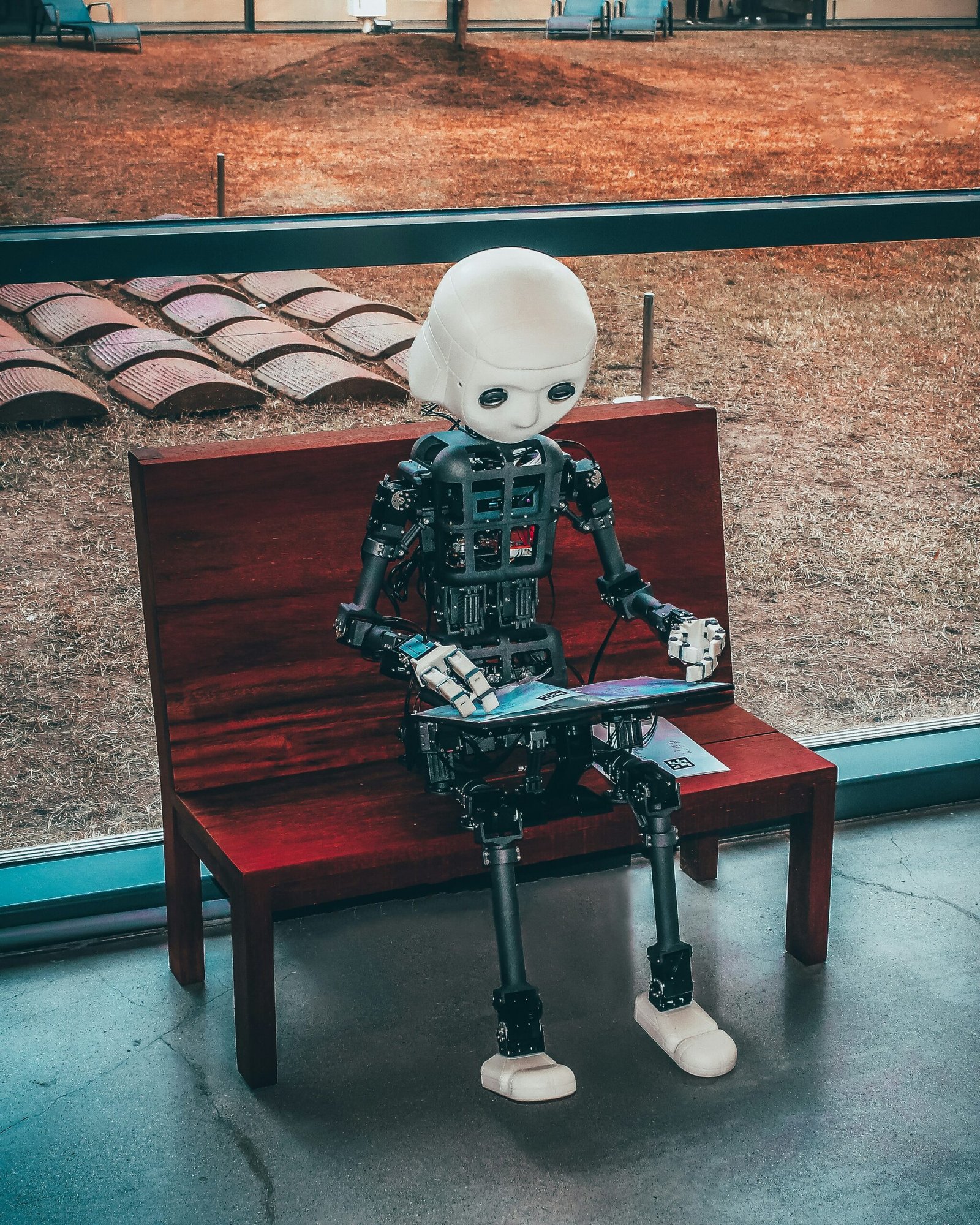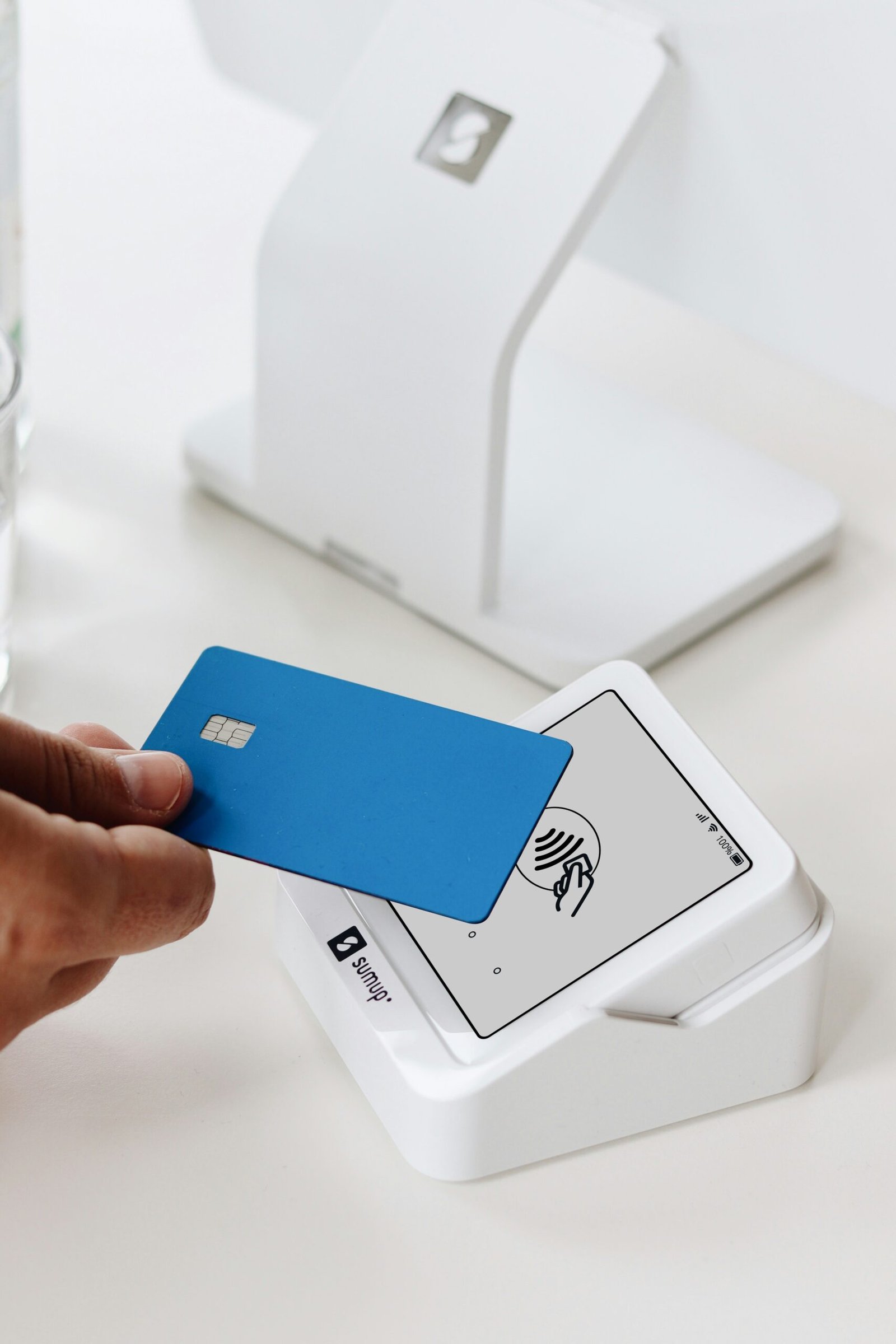AI in healthcare is no longer a futuristic dream; it’s happening here and now, revolutionizing how we diagnose diseases, treat patients, and manage healthcare systems. If you think AI in healthcare is just about robots performing surgeries, think again. It’s a broad and fascinating field with exciting career opportunities, jaw-dropping salaries, and a chance to make a real difference in people’s lives.
So, grab your favorite coffee (or tea, if you’re fancy), and let’s dive into the magical world where AI meets stethoscopes, scrubs, and all things medical!
What is AI in Healthcare?
At its core, AI in healthcare is about using machines to mimic human intelligence to analyze complex medical data. It’s like having a super-smart assistant who’s never tired, doesn’t need coffee breaks, and remembers everything (unlike me, who forgot where I left my keys this morning). AI technologies include:
- Machine Learning (ML): Algorithms that learn from data to predict outcomes, like diagnosing diseases or forecasting patient recovery times.
- Natural Language Processing (NLP): Helps understand and interpret medical texts, such as patient records and research papers.
- Computer Vision: Enables machines to analyze images and videos, making it invaluable for radiology and pathology.
- Robotics: Assisting in surgeries or patient care, such as robotic-assisted surgeries.
Now that you’re caught up on the basics, let’s explore how AI is making waves in healthcare.
The Impact of AI in Healthcare
AI has entered almost every nook and cranny of the healthcare industry. Here are some jaw-dropping examples:
- Faster Diagnostics: AI tools can scan through mammograms, MRIs, and CT scans faster than your doctor can say “open wide,” identifying anomalies with remarkable accuracy.
- Example: Google’s DeepMind developed an AI that diagnoses over 50 eye diseases with human-level accuracy.
- Predictive Analytics: AI predicts patient outcomes by analyzing vast amounts of data. Hospitals use it to foresee patient admissions, plan resources, and even prevent diseases.
- Fun Fact: Some AI systems predict heart attacks before they happen. Talk about a lifesaver!
- Personalized Treatment Plans: AI tailors treatment based on the patient’s medical history, genetics, and lifestyle. No more one-size-fits-all prescriptions!
- Virtual Health Assistants: From reminding you to take your meds to providing dietary advice, these virtual assistants are like Alexa but care more about your cholesterol than your shopping list.
- Drug Discovery: AI accelerates the drug discovery process, reducing the time to market for new medicines. It’s not just fast; it’s life-saving.
- Administrative Tasks: AI-powered tools streamline repetitive tasks like scheduling appointments and billing, giving healthcare professionals more time to focus on patient care.
Career Opportunities in AI and Healthcare
Now that you’re as excited about AI in healthcare as a kid in a candy store, let’s talk about what’s in it for you career-wise. Spoiler alert: it’s a lot!
Hot Job Roles in AI-Healthcare
- Data Scientist
- What They Do: Analyze complex healthcare datasets to uncover insights and build predictive models.
- Why It’s Cool: You’re the wizard behind the curtain, making AI systems smarter and healthcare better.
- AI/ML Engineer
- What They Do: Develop and optimize AI algorithms used in healthcare applications.
- Why It’s Cool: You’re creating the very tools that help save lives. Talk about job satisfaction!
- Bioinformatics Specialist
- What They Do: Use AI to analyze genetic data and contribute to breakthroughs in personalized medicine.
- Why It’s Cool: Your work could lead to curing diseases. No big deal, right?
- Healthcare Data Analyst
- What They Do: Interpret and manage patient data to improve healthcare services and outcomes.
- Why It’s Cool: You bridge the gap between raw data and actionable insights.
- Clinical AI Specialist
- What They Do: Work alongside medical professionals to implement and manage AI solutions.
- Why It’s Cool: You get to mix tech and healthcare while working directly with doctors and patients.
- AI Healthcare Consultant
- What They Do: Advise healthcare organizations on implementing AI solutions effectively.
- Why It’s Cool: You’re the go-to guru for all things AI in healthcare.
- Robotics Engineer
- What They Do: Design and maintain robots used in surgeries or patient care.
- Why It’s Cool: You’re literally building the future of medicine.
- Ethics Officer (AI in Healthcare)
- What They Do: Ensure AI applications adhere to ethical standards and regulations.
- Why It’s Cool: You’re the moral compass ensuring AI does more good than harm.
Education and Skills You Need
Here’s what you need to succeed in AI healthcare careers:
- Educational Background: Degrees in computer science, data science, bioinformatics, or a related field. Medical knowledge is a bonus!
- Key Skills:
- Programming (Python, R, etc.)
- Machine Learning and AI
- Data Visualization Tools (Tableau, Power BI)
- Domain knowledge in healthcare
- Strong analytical and problem-solving skills
Want to go the extra mile? Certifications like Google AI or Stanford’s AI in Healthcare specialization can give your resume a serious boost.
Show Me the Money!
Let’s talk about the part you’ve been waiting for: the salaries. Here’s a sneak peek at what you can earn in the AI healthcare field:
- Entry-Level Roles: $70,000 – $100,000 annually.
- Mid-Level Roles: $100,000 – $150,000 annually.
- Senior Roles: $150,000 – $250,000 (or more!).
And that’s just in the U.S. Globally, salaries vary but are equally competitive. Bonus: some roles even come with stock options and performance bonuses. Hello, financial freedom!
Future Trends in AI Healthcare
Wondering what’s next? Here are some exciting trends:
- AI-Powered Wearables: Imagine wearables diagnosing issues before you even feel sick. That’s the future!
- Telemedicine 2.0: AI is taking virtual consultations to the next level with real-time diagnostics.
- AI in Mental Health: Chatbots providing counseling or identifying mental health issues early.
- Global Health Solutions: Using AI to tackle healthcare challenges in underserved regions.
Why AI in Healthcare is the Best Career Choice
Let’s sum it up:
- High Demand: The healthcare industry is embracing AI like never before, creating a surge in job opportunities.
- Good Pay: Competitive salaries make it a lucrative career choice.
- Impactful Work: Your work could save lives and improve healthcare systems worldwide.
- Growth Potential: The field is just getting started. There’s plenty of room to grow.
And let’s not forget: working at the intersection of tech and healthcare means you’ll always have fascinating stories to share at parties.
Conclusion
AI in healthcare is transforming the industry in ways we couldn’t have imagined a decade ago. Whether it’s diagnosing diseases, improving patient care, or streamlining hospital operations, the possibilities are endless. For professionals, it offers a rewarding career path with incredible growth potential and handsome paychecks.
So, if you’re tech-savvy, love healthcare, and want to make a difference, now’s the perfect time to dive into this exciting field. Who knows? You could be the genius behind the next AI breakthrough that changes the world.
Now, go on and start your journey in AI healthcare—because the future is already here, and it needs people like you!








